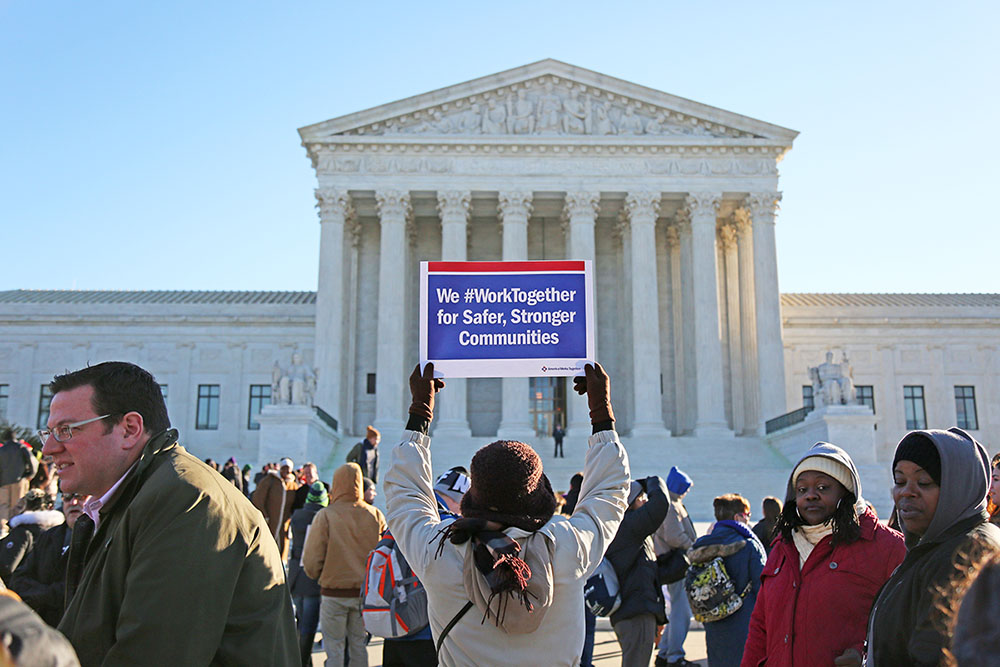
Earlier today, the Supreme Court heard oral arguments in a case you may have heard about — Friedrichs v. California Teachers Association (CTA).
The gist of the case is this: many California public school teachers are members of CTA. Like all union members, California teachers can choose whether or not to join the union. However, when the majority of people vote to form a union (as is the case with California school teachers), the union is required by law to represent everyone in the workplace, whether that employee is a union member or not. Teachers who don’t want to belong to a union only have to contribute to the costs of the representation they receive. Because all teachers enjoy the benefits, job security and other protections the union negotiates, it is only fair that all employees contribute to the cost of securing those benefits and protections.
Pretty simple, right? Not so fast. Those challenging this common-sense system argue that simply paying fair-share fees is a violation of free speech.
So why should transportation workers across the country care about teachers in California?
- Friedrichs v. California Teachers Association (CTA) is an orchestrated, malicious attack on workers’ rights. This case isn’t just about teachers in California—it’s about weakening the rights of workers, specifically those employed in the public sector. The group behind the court case is the Center for Individual Rights, which has ties to greedy CEOs and wealthy special interests. If the court finds that teachers no longer have to pay fair-share fees (and sides with those wealthy extremists), teacher unions (and all other public sector unions) will lose considerable strength and leverage. By the way, if details of this case sound familiar to you, it’s because they are. The same special interests that backed Gov. Scott Walker’s attack on public sector workers in Wisconsin in 2011 are the same groups and individuals at play here.
- Many transportation workers are public sector workers. Transportation workers account for less than 3 percent of all public sector workers, but nearly 50 percent of those workers are covered by collective bargaining agreements. A bad decision by the Supreme Court could significantly weaken the power these workers have to stand up for basic workplace rights, like fair wages and safe working conditions.
- A bad decision by the Supreme Court will only make the rich richer. For far too long, America’s economy has unfairly favored the wealthy at the expense of ordinary people. Our middle class is shrinking and it’s getting harder to get by, let alone get ahead. If the Supreme Court rules in favor of the plaintiffs, things will only get worse. That’s because unions act as a check against corporate power. When unions are weak, corporate CEOs and wealthy individuals have more power to manipulate the rules in their favor and exploit working people.
Learn more by visiting http://americaworkstogether.us/ and by following #WorkTogether on Twitter.